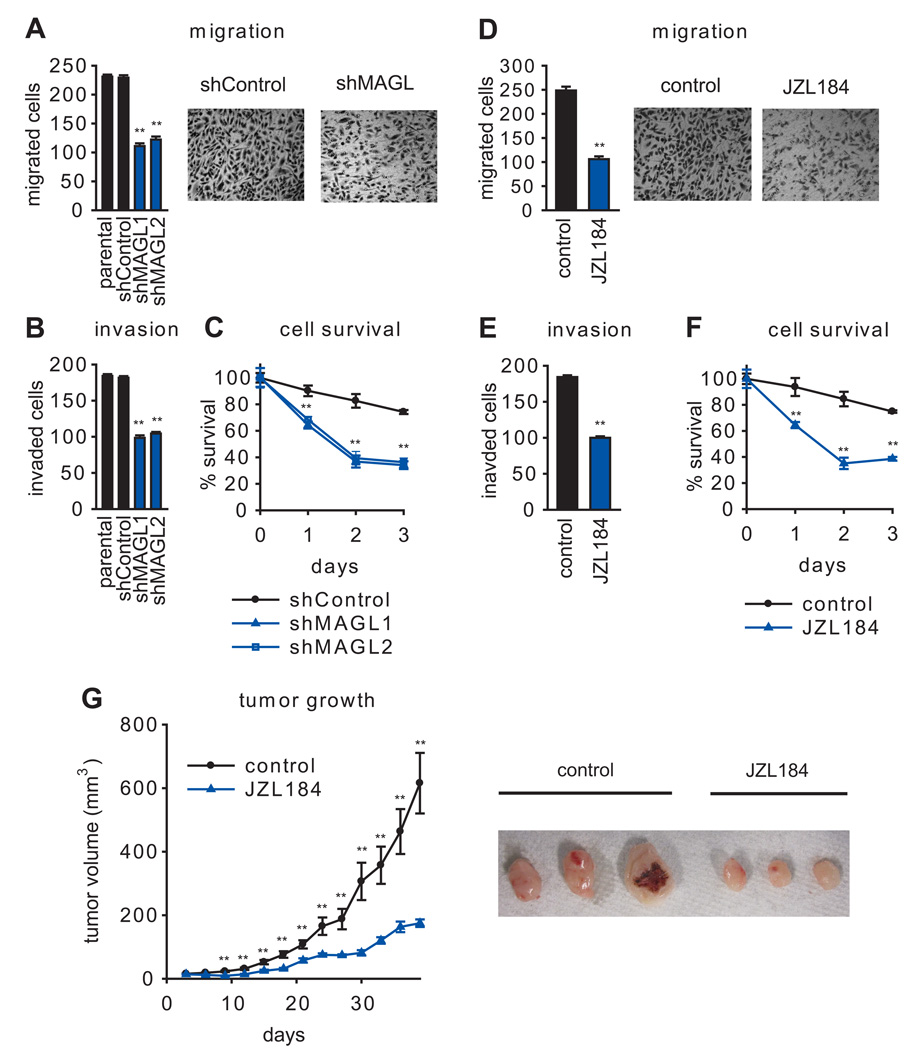Figure 3. Pharmacological and shRNA blockade of MAGL impairs PC3 aggressiveness.
(A–C, D–F) Both shMAGL and JZL184 (1 µM) PC3 cells show impaired migration (A, D), invasion (B, E), and serum-free survival (C, F). Cancer cells were pretreated with JZL184 in serum-free media for 4 h before migration (5 h migration time) and invasion (24 h invasion time) assays and 24 h before cell survival (20 h in serum and 4 h in serum-free media with JZL184). For PC3 migration, representative fields of migrated cells are shown at 200 × magnification. (G) Pharmacological (40 mg/kg JZL184, daily oral gavage) inhibition of MAGL causes impairments in PC3 tumor xenograft growth in immune-deficient SCID mice. Representative tumors are shown on the right. **p<0.01 for shMAGL versus shControl or JZL184 versus vehicle treatment groups. Data are presented as means ± SEM. For (A,B,D,E), n=4–5/group and for (C,F,G), n=6–8/group. See Figure S2 and Figure S3.

